| Διακοινοβουλευτική Συνέλευση Ορθοδοξίας Межпарламентская Ассамблея Православия | |
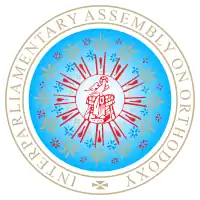 | |
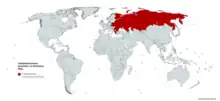 Interparliamentary Assembly on Orthodoxy map | |
| Abbreviation | I.A.O. |
|---|---|
| Formation | 5 November 1994 |
| Type | Religious inter-parliamentary institution |
| Headquarters | 22-24 Vas. Amalias St. Athens, Greece |
| Location | |
Membership | Parliamentary committees of 21 national parliaments |
Official language | Greek, Russian, English, French |
Secretary General | Maximos Charakopoulos |
President of the General Assembly | Sergei Gavrilov |
| International Secretariat | |
Main organ | General Assembly |
| Website | eiao |
The Interparliamentary Assembly on Orthodoxy (Greek: Διακοινοβουλευτική Συνέλευση Ορθοδοξίας, Russian: Межпарламентская Ассамблея Православия), or I.A.O., is a transnational, inter-parliamentary institution that in 1994 was originally established as the European Interparliamentary Assembly on Orthodoxy (EIAO).
Based in Athens, Greece, the Interparliamentary Assembly on Orthodoxy constitutes a permanent communication structure between parliamentarians of member states aiming at unity in diversity of Orthodox Christians on the principles and values of Christianity and democracy.[1]
History
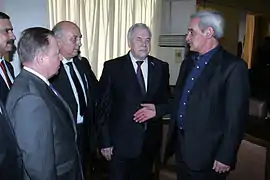
Inspired by a conference held from 30 June to 4 July 1993 in Chalkidiki on the topic of "Orthodoxy in the New European Reality", the European Interparliamentary Assembly on Orthodoxy was formed by the initiative of the Hellenic Parliament.[2] Following the 1993 Manifesto of the Participants, the official Founding Act was passed by the participants of the Founding Synod held in November 1994 in Athens.[3] In 2001, groups of parliamentarians from Australia, Asia, Africa and the United States participated in the General Assembly, the organization was then renamed Interparliamentary Assembly on Orthodoxy (I.A.O.).[2]
During the June 2004 General Assembly in Kyiv, Ukraine, it was decided to seek cooperation with the Parliamentary Union of the Organisation of Islamic Cooperation (P.U.I.C.). A co-operation agreement was drafted at a meeting of the two organizations on 22 March 2005, in Athens.[2] On 19 May 2010, a cooperation agreement with the Pan-African Parliament was signed by PUIC's President Idriss Ndele Moussa and I.A.O.'s Secretary-General Anastasios Nerantzis[4]
Massive protests broke out during the 2019 General Assembly in Tbilisi, Georgia, after the chairman of the assembly, a Russian communist named Sergei Gavrilov, made a number of public statements that were viewed by the Georgian public as denigrating Georgian sovereignty.[5][6]
The delegation from Russia, as well as the delegations from Belarus and Syria, were unable to attend the 2023 General Assembly due to EU sanctions. The election of a Polish president ended the three decade long Russian control of the presidency.[7]
Institutional bodies
General Assembly
The supreme organ of the I.A.O. is the General Assembly, consisting of delegations from all member parliaments. The General Assembly convenes once annually during the month of June.[8]
General Assembly timeline
| No. | Country | City | Year | Main subject |
|---|---|---|---|---|
| 1 | Greece | Olympia | 1993 | Orthodoxy in the new European Reality |
| 2 | Greece | Athens | 1994 | European Countries and their mission in the new European reality |
| 3 | Russia | Moscow | 1995 | The Cultural and Enlightenment Tradition of Orthodoxy |
| 4 | Bulgaria | Sofia | 1996 | The Social Dimension of Orthodoxy |
| 5 | Greece | Chalkidiki | 1997 | Orthodoxy in the context of the European civilization- history and future |
| 6 | Poland | Warsaw | 1998 | The problems of the novel heresies (sects) in the E.I.A.O. countries and effective ways of dealing with them |
| 7 | Russia | Moscow | 1999 | Ways of legal protection of the traditional family as a diachronic value of society |
| 8 | Israel | Jerusalem | 2000 | The Son of Man in the year 2000 AD |
| 9 | Greece | Patmos | 2001 | The contribution of Orthodoxy in the enlarged European Union |
| 10 | Romania | Bucharest | 2002 | Globalisation and Orthodoxy |
| 11 | Lithuania | Vilnius | 2003 | Globalization and Orthodoxy |
| 12 | Ukraine | Kyiv | 2004 | Security with freedom |
| 13 | Switzerland | Geneva | 2005 | Christianism before the challenges of the modern era |
| 14 | Italy | Venice | 2006 | The contribution of the Orthodox culture to the construction of the New Europe |
| 15 | Kazakhstan | Astana | 2007 | The Inter-religious dialogue as a factor of peaceful and fair relationships among peoples |
| 16 | Greece | Rhodes | 2008 | The crisis of the global value system as a challenge before Christian Orthodoxy |
| 17 | Serbia | Belgrade | 2009 | The Global Economic Crisis and its impact on Social – Spiritual – Cultural European tradition |
| 18 | Armenia | Yerevan | 2010 | The contribution of Orthodoxy in the dynamics and development of statehood of the countries of Eastern Christian tradition |
| 19 | France | Paris | 2011 | Religious values in the Economic crisis reality |
| 20 | Czech Republic | Prague | 2012 | Challenges for democracy during periods of global economic crisis |
| 21 | Greece | Athens | 2013 | Parliamentary Democracy – Christianity – Orthodoxy: values and concepts |
| 22 | Russia | Moscow | 2014 | Orthodoxy: values and concepts |
| 23 | Austria | Vienna | 2015 | Orthodox Historic Communities in Europe and around the world |
| 24 | Greece | Thessaloniki | 2016 | Fundamental global changes – Christian Orthodox perspective |
| 25 | Italy | Rome | 2017 | The Christian understanding of global crisis and ways to overcome it |
| 26 | Greece | Athens | 2018 | 25 years of the Interparliamentary Assembly on Orthodoxy |
| 27 | Georgia | Tbilisi | 2019 | The contribution of Parliamentarism in understanding modern Political – Social Phenomena |
| 28 | Virtual meeting due to the COVID-19 pandemic | 2020 | Elections of the I.A.O organs and the agenda of the future I.A.O. activities. 85 Members of Parliaments, official representatives of Parliaments, parliamentary groups and individual Parliamentary representatives participated in the General Assembly. | |
| 29 | Greece | Crete | 2021 | The World’s Future and the Future of Europe after the pandemic |
| 30 | Greece | Chalkidiki | 2023 | 30 years of I.A.O.: Facing new challenges. Before new perspectives |
| 31 | TBD | TBD | 2024 | TBD |
Presidents of the General Assembly
The President of the General Assembly is elected for a two-year tenure by the plenary session of the Assembly.
- 2023–present: Eugeniusz Czykwin
 [9]
[9]
International Secretariat
The International Secretariat appoints eight standing committees. It is headed by the Secretary-General, the Alternate Secretary and the Treasurer, and consists of an additional six members from various countries.[8] As of 2020, the leadership consists of:
- Secretary-General: Maximos Charakopoulos

- Alternate Secretary: Andreas Michailidis

- Treasurer: Stavros Kalafatis

International Secretariat representatives:
- Alexandr Cotric

- Theodore Ssekikubo
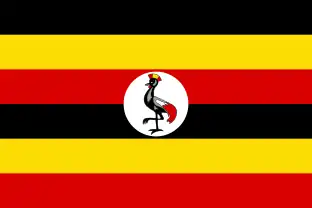
- Eugeniusz Czykwin

- Dmitry Sablin

- Angelos Votsis

- Hany Naguib

Committees of the International Secretariat
As of 2020, the following committees are led by:
- Committee on Human Rights: Vangjel Dule

- Committee on Mass Media: Milen Mihov

- Committee on Social Activity, Family and Motherhood:Elie Ferzli
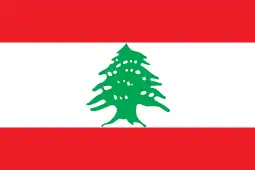
- Committee on Education: Alen Simonyan
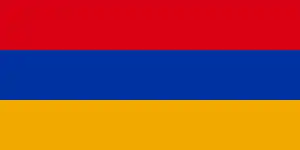
- Cooperation Committee with the Pan-African Parliament: Athanasios Davakis

- Cooperation Committee with the Parliamentary Assembly of the Russian – Belarus Union: Gennadiy Davydko
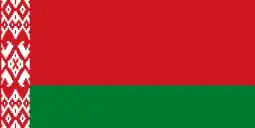
- Cooperation Committee with the Parliamentary Union of the Organisation of Islamic Cooperation member-states: Joseph Iskander
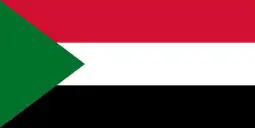
- Cooperation Working Group with the International Catholic Legislators Network: Lefteris Christoforou

Member countries
The Assembly currently consists of parliamentary committees of 21 countries, mostly from Eastern Europe, including:[8]
Additionally, delegations from Africa, Asia, Australia, the European Union, and the United States have been participating in the Assembly.
Cooperation agreements
The I.A.O. has signed several cooperation agreements with various international organizations, including:[10]
- Parliamentary Union of the Organisation of Islamic Cooperation, since March 2005
- Parliamentary Assembly of the Union State, since November 2011
- Pan-African Parliament, since May 2011
- Interparliamentary Assembly of the Eurasian Economic Union, since November 2011
- Parliamentary Assembly of the Black Sea Economic Cooperation (PABSEC), observer status mutually granted
- Inter-Parliamentary Union, observer status mutually granted
- Parliamentary Assembly of the Mediterranean, Memorandum of Understanding since February 2019
The I.A.O has also participated in United Nations General Assembly conferences, has signed cooperation treaties with the parliaments of Egypt, Iran and Lebanon, as well as explored future cooperation with the Baltic Assembly, the European Parliament and the International Catholic Legislators Network: ICLN.[10]
See also
References
- ↑ "Declaration of the 20th anniversary annual General Assembly" (PDF). Interparliamentary Assembly on Orthodoxy. 29 June 2013. Retrieved 13 March 2015.
- 1 2 3 "History". Interparliamentary Assembly on Orthodoxy. Archived from the original on 2 April 2015. Retrieved 13 March 2015.
- ↑ "Manifesto of the participants – Founding Act – Regulation of Functions" (PDF) (2nd ed.). Interparliamentary Assembly on Orthodoxy. 2013. Retrieved 13 March 2015.
- ↑ "Co-operation Agreement between the Pan-African Parliament and the Interparliamentary Assembly on Orthodoxy" (PDF). Interparliamentary Assembly on Orthodoxy. 2010. Retrieved 13 March 2015.
- ↑ "Georgia States Protests While Its Relations With Russian Are in a Tailspin". New York Times.
- ↑ Genin, Aaron (2019-07-25). "Georgian Protests: Tbilis's Two-Sided Conflict". The California Review. Archived from the original on 2019-07-26. Retrieved 2019-07-26.
- ↑ "Sanctions Limit Russia's Participation in Orthodox Christian Assembly". 5 July 2023.
- 1 2 3 "About the I.A.O." Interparliamentary Assembly on Orthodoxy. Archived from the original on 14 July 2019. Retrieved 13 March 2015.
- ↑ "30TH ASSEMBLY CHALKIDIKI, GREECE JUNE 29 – JULY 3, 2023". 3 July 2023.
- 1 2 "HISTORY OF THE IAO". Archived from the original on 2015-04-02. Retrieved 2020-01-07.
External links
- Official website (in English, Greek, and Russian)
- Interparliamentary Assembly on Orthodoxy on Facebook